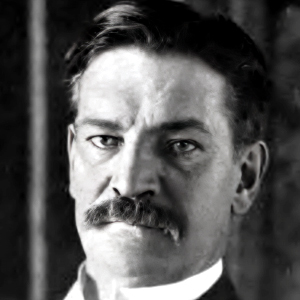Colonel Archibald Gracie's New York Tribune Account
Colonel Archibald Gracie, U. S. A., the last man saved, went down with the vessel, but was picked up. He was met by his daughter, who had arrived from Washington, and his son-in-law, Paul H. Fabricius. Colonel Gracie told a remarkable story of personal hardship and denied emphatically the reports that there had been any panic on board. He praised in the highest terms the behavior of both the passengers and crew and paid a high tribute to the heroism of the women passengers.
"Mrs. Isidor Straus," he said, "went to her death because she would not desert her husband. Although he pleaded with her to take her place in the boat, she steadfastly refused, and when the ship settled at the the head the two were engulfed by the wave that swept her."
Colonel Gracie told of how he was driven to the topmost deck when the ship settled and was the sole survivor after the wave that swept her just before her final plunge had passed.
"I jumped with the wave," said he, "just as I often have jumped with the breakers at the seashore. By great good fortune I managed to grasp the brass railing on the deck above, and I hung on by might and main. When the ship plunged down I was forced to let go, and I was swirled around and around for what seemed to be an interminable time. Eventually I came to the surface, to find the sea a mass of tangled wreckage.
"Luckily I was unhurt and, casting about, managed to seize a wooden grating floating near by. When I had recovered my breath I discovered a larger canvas and cork liferaft which had floated up. A man whose name I did not learn was struggling toward it from some wreckage to which he had clung. I cast off and helped him to get on to the raft, and we then began the work of rescuing those who had jumped into the sea and were floundering in the water.
"When dawn broke there were thirty of us on the raft, standing knee deep in the icy water and afraid to move lest the cranky craft be overturned. Several unfortunates, benumbed and half dead, besought us to save them, and one or two made an effort to reach us, but we had to warn them away. Had we made any effort to save them we all might have perished.
"The hours that elapsed before we were picked up by the Carpathia were the longest and most terrible that I ever spent. Practically without any sensation of feeling because of the icy water, we were almost dropping from fatigue. We were afraid to turn around to look to see whether we were seen by passing craft, and when some one who was facing astern passed the word that something that looked like a steamer was coming up one of the men became hysterical under the strain. The rest of us, too, were nearing the breaking point."
Colonel Gracie denied with emphasis that any men were fired upon and declared that only once was a revolver discharged.
"This was for the purpose of intimidating some steerage passengers," he said, "who had tumbled into a boat before it was prepared for launching. This shot was fired in the air, and when the foreigners were told that the rest would be directed at them they promptly returned to the deck. there was no confusion and no panic."
Contrary to the general statement, there was no jarring impact when the vessel struck, according to the army officer. He was in his berth when the vessel smashed into the submerged portion of the berg and was aroused by the jar. He looked at his watch, he said, and found it was just midnight. The ship sank with him at 2:27 a. m., for his watch stopped at that hour.
"Before I retired," said Colonel Gracie, "I had a long chat with Charles M. Hays, president of the Grand Trunk Railroad. One of the last things Mr. Hays said was this: 'The White Star, the Cunard and the Hamburg-American lines are devoting their attention and ingenuity in vying one with the other to attain the supremacy in luxurious ships, and in making speed records. The time will soon come when this will be checked by some appalling disaster.' Poor fellow, a few hours later he was dead."
Source Reference
Title
Colonel Archibald Gracie's New York Tribune Account
Survivor
Colonel Archibald GracieDate
April 19, 1912
Newspaper
New York Tribune
Copyright Status
Public DomainThis is item can be used freely as part of Titanic Archive’s Open Access policy.
